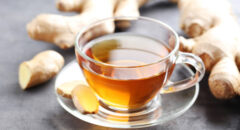
Does coffee cause cancer? A ruling from a Los Angeles judge last week now means that in California, coffee companies like Starbucks must warn customers of a potentially cancer-causing chemical found in coffee, which is causing a lot of people to ask that question and raise the debate, is coffee good for you?
A little-known not-for-profit group sued some 90 coffee retailers, including Starbucks, on grounds they were violating a California law requiring companies to warn consumers of chemicals in their products that could cause cancer. This could possibly expose the companies to millions of dollars in fines.
One of those chemicals listed in the suit is acrylamide, a byproduct of roasting coffee beans that is present in high levels in brewed coffee.
According to the National Cancer Institute, acrylamide is a chemical used primarily to make substances called polyacrylamide and acrylamide copolymers. Polyacrylamide and acrylamide copolymers are used in many industrial processes, such as the production of paper, dyes, and plastics, and in the treatment of drinking water and wastewater, including sewage. They are also found in consumer products, such as caulking, food packaging, and some adhesives.
The National Toxicology Program’s Report on Carcinogens considers acrylamide to be reasonably anticipated to be a human carcinogen, based on studies in laboratory animals given acrylamide in drinking water. However, toxicology studies have shown that humans and rodents not only absorb acrylamide at different rates, they metabolize it differently as well.
The lawsuit was filed in 2010 by the Council for Education and Research on Toxics (CERT). It calls for fines as large as $2,500 per person for every exposure to the chemical since 2002 at the defendants’ shops in California. Any civil penalties, which will be decided in a third phase of the trial, could be huge in California, which has a population of nearly 40 million.
Los Angeles Superior Court Judge Elihu Berle said in a decision dated last Wednesday that Starbucks and other companies had failed to show there was no significant risk from a carcinogen produced in the coffee roasting process, court documents showed.
Starbucks and other defendants have until April 10 to file objections to the decision.
Coffee retailers lost the first phase of the trial in which it failed to show the level of acrylamide in coffee was below that which would pose a significant risk of cancer. In the second phase of the trial, defendants failed to prove there was an acceptable “alternative” risk level for the carcinogen, court documents showed.
Starbucks declined to comment, referring reporters to a statement by the National Coffee Association (NCA) that said the industry was considering an appeal and further legal actions.
“Cancer warning labels on coffee would be misleading. The U.S. government’s own Dietary Guidelines state...
...that coffee can be part of a healthy lifestyle,” the NCA statement said.
In his decision, Berle said: “Defendants failed to satisfy their burden of proving by a preponderance of evidence that consumption of coffee confers a benefit to human health.”
Officials from Dunkin’ Donuts, McDonald’s Corp, Peet’s and other big coffee sellers did not immediately respond to requests for comment.
Several defendants in the case settled before last week’s decision, agreeing to post signage about the cancer-linked chemical and pay millions in fines, according to published reports.










